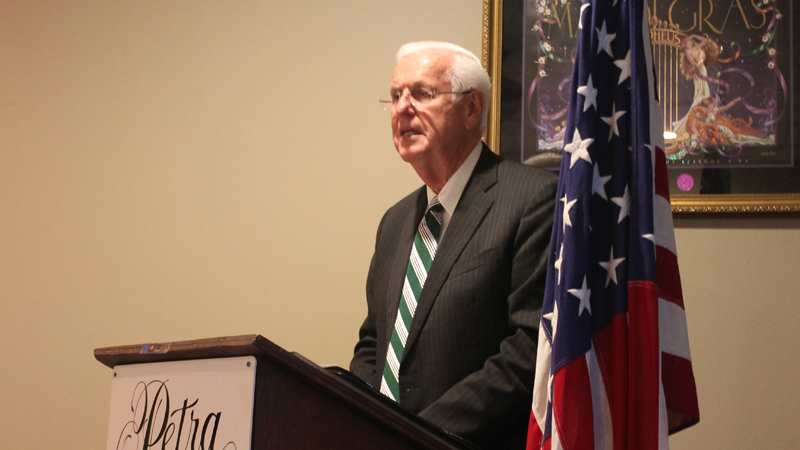Donelon said at a Tuesday news conference that the changes were spawned by over 7,000 complaints during Hurricanes Laura, Delta, Zeta and Ida that covered more than 800,000 damage claims, as well as lessons learned from a half-dozen insurance companies that went insolvent in the aftermath.
Trending
Legislation in the so-called Catastrophic Reform Package included Senate Bill 264, now Act 69, sponsored by Sen. Joseph Bouie, D-New Orleans, to increase the minimum capital and surplus requirements for insurers licensed to write certain insurance policies.
“By having $10 million of their own money on the table, the expectation and hope … is those (insurers) will be more prudent … and less trying to maximize their profit,” he said.
Donelon also discussed House Bill 83, now Act 434, sponsored by Rep. Laurie Schlegel, R-Jefferson, that changes how insurance companies cover additional living expenses due to an evacuation. The coverage was previously triggered by an official emergency declaration, but some local officials did not issue an evacuation order due to the approaching speed of recent storms (Zeta’s forward velocity at landfall was 30 mph) and potential to create gridlock, resulting in some insurers voluntarily covering claims and others refusing to do so.
Act 434 replaces the requirement for an emergency declaration with consideration of the totality of circumstances, to ensure coverage in those unique circumstances.
Senate Insurance Committee Chairman Kirk Talbot, R-River Ridge, also attended the press conference on Tuesday to outline several successful insurance reform bills he sponsored in 2022.
“The main thing we wanted to do is make sure the insurance market is working better and also to attract insurance companies to Louisiana,” he said.
Trending
The program, first used under then-Gov. Kathleen Blanco, passed the Legislature overwhelmingly, Talbot said, though he acknowledged that “funding is a big issue” that remains unresolved.
“That’s something we can address next session,” he said.
Talbot also discussed SB 198, now Act 263, to establish what’s commonly referred to as a three adjuster rule, which would require insurance companies to provide an update on claims, as well as a primary contact person, after a third adjuster is assigned during a catastrophe.
Talbot’s SB 163, now Act 80, would require specific disclosures for the catastrophic claims process that include an explanation of the claims process and how the insurer will communicate, explanation of the supplemental claim process, an explanation of the methodology used in calculations, an explanation of actual cash valuation versus replacement cost valuation, items necessary to document a claim, how to complain to the insurance department, and other details of the process.
House Insurance Committee Chairman Mike Huval, R-Breaux Bridge, attended the press conference to highlight HB 521, now Act 157, to require residential and auto insurance companies to file a catastrophic response plan with the Department of Insurance. The plans must include items like emergency contact, alterative work sites, and processes for claims processing that are subject to the approval of state officials.
“If you can save the roof, there’s less chance for the interior of the home to be damaged,” Huval said, adding that the intent is to minimize storm damage “so they can come back home sooner.”






